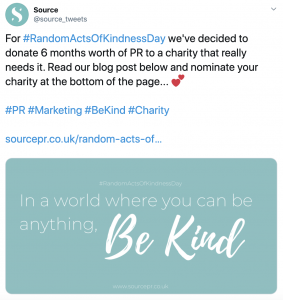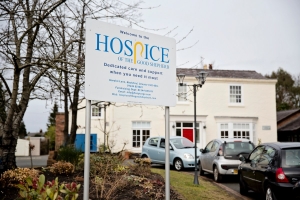How To Best Use Influencer Marketing
Influencer marketing is increasingly being used by businesses and brands to extend their range and reach into new and lucrative markets. Although the marketing tactic has been used for several years, influencer marketing is set for exponential growth in 2023.
PR agencies have always been the preferred partner for businesses looking to engage in influencer marketing. From the more traditional media briefings in which companies sought to inspire editors and the media agenda, through to brand collaborations when the reputation of an established brand is used to leverage exposure for a new or emerging brand – the right PR agency can help reach and influence new audiences like no other marketing medium.
Today however influencer marketing primarily refers to collaborations between brands and ‘influencers’ on digital platforms whether social media, blogs or other digital channels. The question often asked by clients is ‘what is an influencer?’ and how to gauge whether they have a genuine ‘influence’ amongst target audiences.
Influencer Marketing – Breaking It Down
One common mistake is to not differentiate between a celebrity and an online influencer. Admittedly many celebrities can extend into the role of influencer but in many cases, they are quite separate entities.
Most influencers have built a loyal and enthusiastic audience by posting relevant and engaging content that resonates with their followers. People organically elect to follow these influencers based on their content, which in turn can vary from quite generic topics such as food & drink, parenting and travel right down to very specific subjects such as photography, wellness or types of gin (and everything in-between!).
Influencer marketing is not limited to consumer brands as an influencer can be a well-read business expert or blogger who tweets relevant content, or a respected marketing executive on LinkedIn with insightful views and opinions. Within any industry, there are influential people—you just need to find them – and that’s where working with a PR agency can help.
Some influencers have hundreds of thousands (if not millions) of followers but there are also plenty who seem more like ordinary people. They may have less than 10,000 followers but they have developed a reputation for being the experts in their field. They are the go-to people who are trusted to provide the answers to people’s questions. Depending on their sphere of expertise, they can often be the people who make the most engaging social posts on their specialist topics. They share the best pictures, make the most entertaining videos, and run the most informative online discussions.
It’s important to realise that the influencer’s audiences don’t really care about brands specifically, more the opinions of the influencer towards the brand. It’s therefore important to work with the influencer rather than push your rules, ‘brand guidelines’ or business practices into their actions as they can simply walk away, taking their followers with them or worse still become antagonistic.
The growth of influencer marketing
The statistics speak for themselves. In 2016, influencer marketing was a $1.7bn industry worldwide, while last year (2022) it had grown to more than $16.4bn. According to an influencer marketing hub report, 90% of survey respondents believe influencer marketing is an effective form of marketing and currently more than two thirds (67%) of brands use Instagram for influencer marketing.
The growth is set to continue as 75% of the survey respondents suggested that they would be dedicating a budget to influencer marketing in 2023. This rate is up substantially from the 37% who claimed they would allocate a budget to it just 6 years ago in 2017.
Tips for influencer marketing
So, for brands or businesses looking to engage with influencer marketing, we’d suggest that to be most effective, start with a plan that includes objectives, target markets and a budget and then begin careful research into who would be a good fit and provide you with a platform for targeted exposure.
When researching influencers, don’t be overtly swayed by their follower numbers but instead look at their levels of engagement. How many people like their posts, comment or share as these are the key metrics to consider. Often big name influencers may not be right for a brand or too commercial to develop genuine and lasting relationships.
Decide also how you are going to find and approach the influencer. This can be time consuming so working with a PR agency that works with influencers can be a big help as often they may have existing relationship or the resource to target them organically.
When you have found the perfect partner, work with them and develop a schedule of activities. Consider how their posts can integrate with your existing social media or content marketing schedule, what agreements are in place to ensure the right number of posts, reels or blogs are included in exchange for a product or service. Is money changing hands and, if so, are the right contracts in place? Also remember the influencer must declare if a financial agreement or if a product has been gifted.
It’s also worth considering what doesn’t work. Buying influence does not work as many influencers have spent time building their following and so wont risk tarnishing their reputation by selling out and promoting products they don’t like, relate to, or would not recommend to their followers.
It’s also not necessarily about quick results and fast sales. Although this can be the case (most famously when Delia Smith recommends a kitchen product, they sell out fast!) the main objectives of influencer marketing is building the exposure of your product, its reputation and taking it to new potential audiences through the strength of third party endorsement.
Remember also to be specific as one size does not fit all. Spend time to find the right fit with an influencer and when that’s achieved it’s proven to pay dividends.
For more information on influencer marketing, contact a member of the Source PR team and let us help build you reputation, product awareness and take your brand or business into new and exciting areas.



